|
Failure to increase oilseed output
Although, Pakistan 80 per cent cultivatable area is irrigated
but the edible oil needs are met through imports. The import
bill rising from Rs77 million in 1969-70 to Rs39 billion in
2002-03 has overburdened the exchequer.
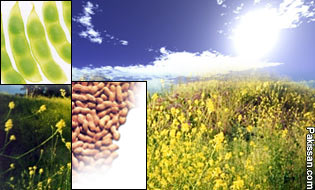 In
1970-71, oilseeds occupied nearly 3 per cent of the total
cultivated area which went down to 2.5 per cent by 2002-03. In
1970-71, oilseeds occupied nearly 3 per cent of the total
cultivated area which went down to 2.5 per cent by 2002-03.
Nearly 30 per cent of the total need is met through local
production, while 70 per cent by imports. In domestic
production, the share of cottonseed is 70 per cent, that of
rape and mustard including canola, etc 15.8 per cent. and
sunflower and others 12.5 per cent.
Depending upon the varieties or hybrid seed, oil content in
cottonseed varies from 10-12 per cent, rape and mustard 36-41,
canola 42, sunflower 32-36, safflower 17-32, groundnut up to
50, sesame 46-48, linseed 35-45, and coconut up to 50 per
cent.
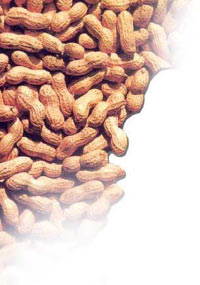 No
serious effort has been made to increase local production of
oilseeds. Production of rape and mustard oilseeds has been
neglected with the result that the area under these two
varieties has declined from 470,000 hectare in 1975-76 to
281,000 hectare in 2002-03 and production from 267,000 ton to
235,000 ton during this period. No
serious effort has been made to increase local production of
oilseeds. Production of rape and mustard oilseeds has been
neglected with the result that the area under these two
varieties has declined from 470,000 hectare in 1975-76 to
281,000 hectare in 2002-03 and production from 267,000 ton to
235,000 ton during this period.
The maximum area of 108,000 hectare under groundnut ever
achieved in 1997-98 again declined to 86,000 hectares in
2002-03 resulting in production fall from 112,000 tons to
90,000 tons.
Similarly, the maximum area of 136,000 hectare under sesame
ever achieved in 2001-02, again fell to 88,000 hectares by the
next year resulting in the reduction of production from 70,000
to 19,000 tons.
Likewise, area under linseed dropped from 10,491 hectares in
1985-86 to 5,946 hectares in 2002-03 and production from 5,622
to 2,966 tons. The government established the Pakistan Oilseed
Development Board in 1988 and other concerned organizations
which are mostly concentrated on the improvement of
non-traditional oilseeds like sunflower, safflower, soyabean,
canola etc.
As a result the area under sunflower increased from 31,418
hectare in 1990-91 to a maximum of 144,191 hectare in 1998-99
and, thereafter, declined to 107,717 hectare in 2002-03.
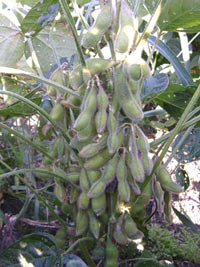 Likewise,
production of sunflower increased from 34,649 ton in 1990-91
to a maximum of 194,544 ton in 1998-99 and then fell to
128,531 ton in 2002-03. Similarly, area of 1,875 hectare under
soyabean in 1990-91 increased to a maximum of 6,613 hectare in
1993-94 and declined to 1,320 hectare in 2002-03. Its
production of 930 ton in 1990-91 reached to a maximum of 8,229
ton in 1997-98 and then declined to 1,898 ton in 2002-03. Likewise,
production of sunflower increased from 34,649 ton in 1990-91
to a maximum of 194,544 ton in 1998-99 and then fell to
128,531 ton in 2002-03. Similarly, area of 1,875 hectare under
soyabean in 1990-91 increased to a maximum of 6,613 hectare in
1993-94 and declined to 1,320 hectare in 2002-03. Its
production of 930 ton in 1990-91 reached to a maximum of 8,229
ton in 1997-98 and then declined to 1,898 ton in 2002-03.
Similarly, maximum area of 8,751 hectare under linseed in
1991-92 declined to 5,946 hectares in 2002-03, with a
corresponding decline in production from 4,365 tons to 2,966
tons during this period.
The current area under canola is 24,291 hectare with a canola
oil production of 18,000 ton. Consequently, overall production
of oilseeds could not meet the increasing requirements due to
declining area and production. Of the various causes inept
policies are also to blame which have discouraging effect of
support price and its non-availability to the growers.
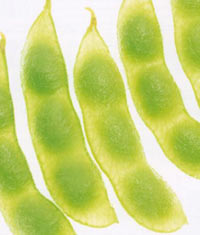 As
a result growers are shifting to other crops. There also exist
a vested interest that does not want the country to achieve
autarky in edible oil as they earn money through smuggling,
and commission on annual imports. As
a result growers are shifting to other crops. There also exist
a vested interest that does not want the country to achieve
autarky in edible oil as they earn money through smuggling,
and commission on annual imports.
All this reflects dismal oilseed production scenario. Even
though the government in 1999-00 directed Minfal to achieve
self- sufficiency within a year. Till today it could not be
achieved as the powerful lobby in bureaucracy does not want it
on the plea that imported oil is cheaper than the locally
produced.
The government must develop a practicable programme on war
footing to achieve yellow revolution at the earliest to become
self- sufficient in edible oil production. To achieve self
sufficiency following measures are suggested:
*Both, traditional and non-traditional oilseeds be brought
under increased oilseed production programme on top priority.
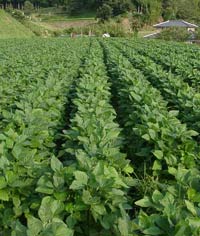 *Provide
incentive for oilseeds and ensure that the industry procures
oilseed from the farmers accordingly. *Provide
incentive for oilseeds and ensure that the industry procures
oilseed from the farmers accordingly.
*Improvement in extraction capabilities, especially in
cottonseed oil where nearly 200,000 tons are lost in seed cake
due to inefficient extraction through expellers.
*Groundnut is not used for oil extraction rather is consumed
orally. It contains 50 per cent oil and on extraction can
provide over 40,000 tons of oil.
*Local rape variety contains high content of erucic acid and
glucosionate which are harmful for human health. It should be
replaced with canola, a Canadian variety of rape with zero
content of both these harmful chemicals.
*Inter cropping of both rape and mustard should be done on 10-
12 feet apart rows or ridges in wheat and berseem.
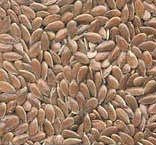 It
will neither require additional water nor effect the yield of
major crops. Similarly, soyabean can be inter cropped in
cotton, sugarcane and maize. Various oil seeds can also be
inter cropped in orchards. It
will neither require additional water nor effect the yield of
major crops. Similarly, soyabean can be inter cropped in
cotton, sugarcane and maize. Various oil seeds can also be
inter cropped in orchards.
*Efforts should be made to increase edible maize oil
production. Oil can also be extracted from rice bran which
contains 15 per cent oil by using the Korean bran stabilizer
technology.
*High yielding, disease and pest resistant local or exotic
oilseed varieties or hybrids should be introduced. High
production inputs at subsidized rates and credit on easy terms
need to be provided to farmers.
Solvent industry should be involved in the promotion of
oilseed crops with guaranteed procurement arrangement. Public
sector should ensure support price if private sector does'nt.
Import duty on soyabean and palm oil should be increased to
encourage local production.
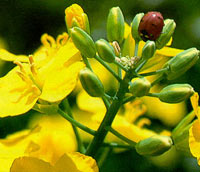 *Efforts
be made for high yielding sunflower and canola hybrids to
reduce import bill of seeds. *Efforts
be made for high yielding sunflower and canola hybrids to
reduce import bill of seeds.
*Provision of farm machinery like planters, threshers, driers
be made easier.
*Action be taken to check smuggling of edible oil.
*The PODB should be given more power and resources for dealing
with all aspects of oilseed production to make the country
self-sufficient.
Courtesy: The Dawn
|
Pakissan.com;
|